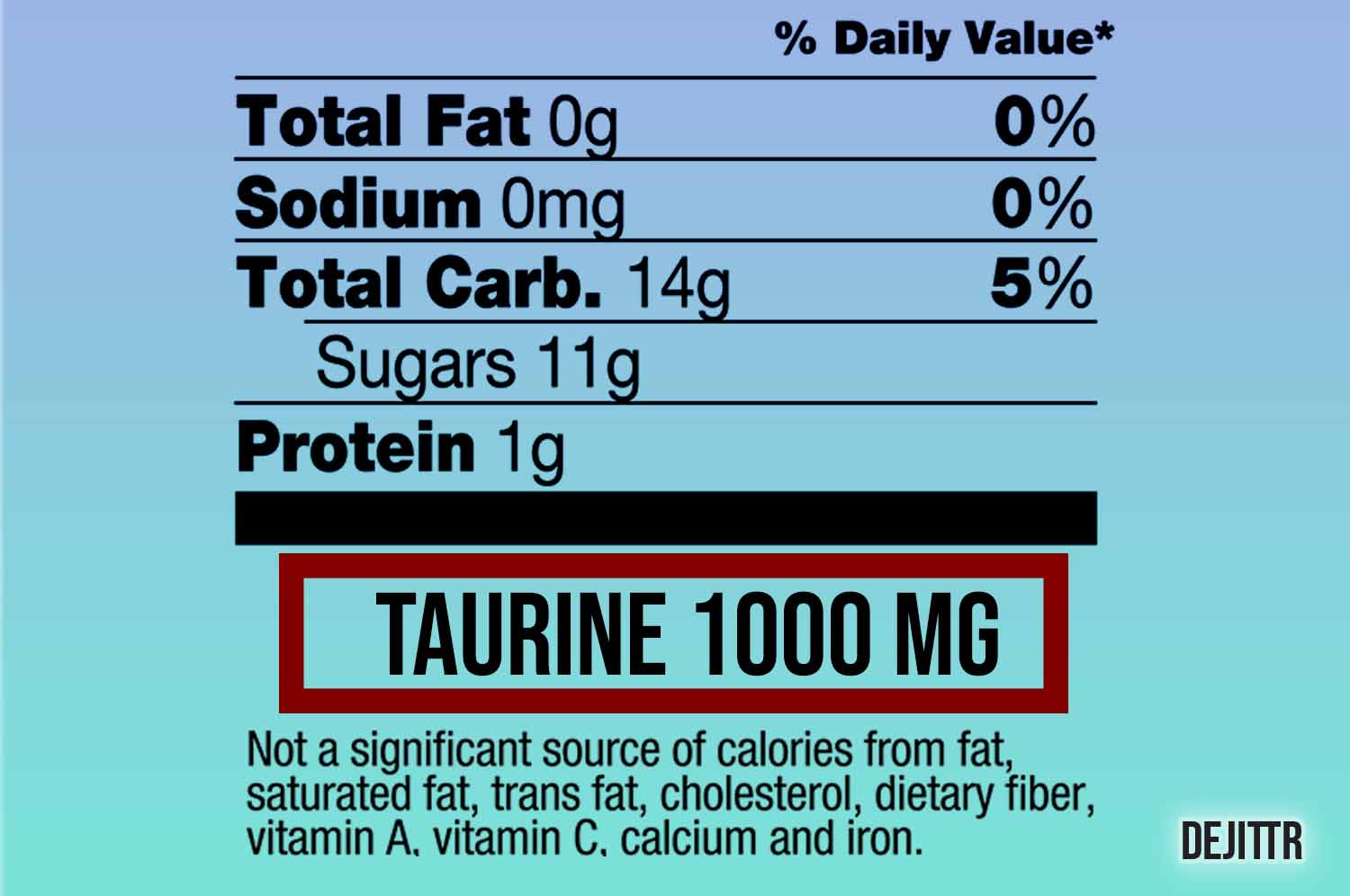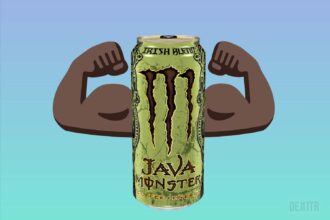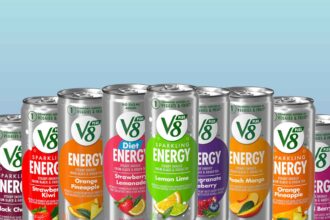Looking at the label of an energy drink is overwhelming, with dozens of ingredients listed. This is a good way for energy drink manufacturers to hide the use of controversial ingredients like Taurine. Because of this, I decided to do some research into which products contain Taurine, and here’s what I found.
Most energy drinks will contain Taurine. The most prominent examples are; Red Bull, Rockstar, Monster, Tab Energy, Bang Energy, Go-Girl, and G Fuel. The amount of Taurine varies by brand. But on average, there is 3,180mg/L of Taurine in an energy drink.
Many people have reservations about drinking energy drinks because of the number of chemical compounds they contain. Some of these have the potential to cause harm. Keep reading to learn the truth about Taurine, why it’s used, and how it can impact your health.
How Much Taurine Is in Energy Drinks?
The amount of Taurine available will vary depending on the brand and the size of the can. Here are some of the most popular energy drink brands and how much Taurine they contain:
| Brand | Taurine Content Per Can |
| Monster (16-ounce can) | 2,000 mg |
| Red Bull (8.3-ounce can) | 1,038 mg |
| Rockstar (16-ounce can) | 2,000 mg |
| Tab Energy (12-ounce can) | 1,178 mg |
| Go Girl Sugar-Free (12-ounce can) | 1,200 mg |
The amount of Taurine found in energy drinks will be between 20 mg to 2,000mg for a 16-ounce can. A study of 42 brands found the average amount of Taurine is 3,180mg/L.
Taurine is widely used and features in most energy drinks. But there are some brands that won’t use this ingredient. One of the most prominent examples is Proper Wild, which only uses ingredients that have been scientifically proven to be effective.
How Does Taurine Affect the Body?
Taurine is widely used by energy drink manufacturers for its calming effects, controlling the jitters that can come from a high dose of caffeine. This naturally occurring amino acid has a range of other roles within the body including balancing electrolyte levels and producing bile.
Many of us assume that Taurine is responsible for the mental alertness that comes after consuming an energy drink. But this isn’t the case. That is due to the high caffeine content. In reality, Taurine is more likely to act as a sedative, rather than boosting your energy levels.
This can help you lower your stress levels. It also helps counteract the negative effects of a high caffeine dose, like shaking, while preserving the mental alertness that caffeine provides.
Though energy drinks contain a large amount of Taurine, this amino acid is produced naturally in the liver. Several organs require the use of Taurine, with some of the most important tasks being:
- Balancing electrolyte levels. This keeps you from becoming dehydrated.
- Producing bile. Bile is a vital part of the digestion process, helping you break down your food.
- Supports brain function. Taurine can act as a neurotransmitter, helping you send signals from one part of your brain to the other.
Taurine might also be able to help you improve your athletic performance, with the ability to delay muscle fatigue. However, this is still a contentious area of research, with limited studies and mixed results. For example, a study from the University of Antioquia found that neither caffeine nor Taurine was able to increase psychological or physical performance during exercise.
Scientists are still researching the effects of Taurine on the body. Most of the research has been focused on the effects of energy drinks, which contain high levels of caffeine and other chemicals that can sway the results.
Is Taurine Safe to Consume?
As long as Taurine is consumed in moderation, it is safe. It’s recommended that users avoid consuming more than six grams per day. This equates to a maximum of 64 ounces of energy drinks per day. Below this level, there shouldn’t be any adverse side effects.
There haven’t been many long-term studies into the effects of Taurine. But the available medical evidence indicates that it is safe to consume, without any known side effects.
You just need to be careful about how much you are drinking. The amount you can drink will depend on your body weight. You can have a maximum of 100mg per kg of weight, according to the European Food Safety Authority. They advise a maximum of six grams of Taurine per day.
It’s estimated that most diets contain 123 to 178 mg of Taurine. Based on the average serving of 750 mg of Taurine per 8 ounces, you should only be consuming 64 ounces of energy drinks per day. There are a few other safety risks to consider before drinking energy drinks that contain Taurine, these include:
- Can interact with some medications. If you are on a medication that relies on cytochrome P450 enzyme inhibitor, the Taurine might interact negatively and cause unpleasant side effects. This can impact antidepressant users. Though this is rare, it’s best to consult with your doctor.
- Allergic reactions. Some people can be allergic to Taurine. This can cause symptoms like headaches, nausea, and stomach pain.
Despite these risks, the effects of other ingredients in energy drinks, like caffeine and sugar, are more likely to cause adverse side effects when consumed at high levels. For example, high caffeine intake has been linked to trouble falling asleep and heart health issues.
How Is Taurine Produced?
There is an ongoing myth that Taurine is extracted from bull semen, which is how Red Bull got its name. This is, thankfully, false. It was first discovered in the saliva of an ox.
The Taurine that is used in energy drinks today is synthetically produced, to ensure consistent quality. As a result, it is suitable for vegetarian, vegan, and halal drinkers.
In addition to the Taurine found in energy drinks it can also be located in meat and fish. It can also be gained through eating meat products like dairy. The human body naturally produces a small amount of Taurine in the liver, gastrointestinal tract, bile, and muscle tissue.
Final Thoughts
Unlike caffeine, excessive ingestion of Taurine doesn’t appear to be a major problem. But it’s still worth investigating how much is in your favorite brand of energy drink. If you’re getting more than six grams of Taurine a day, it’s worth thinking of switching to a different brand or reducing the number of cans you drink.













